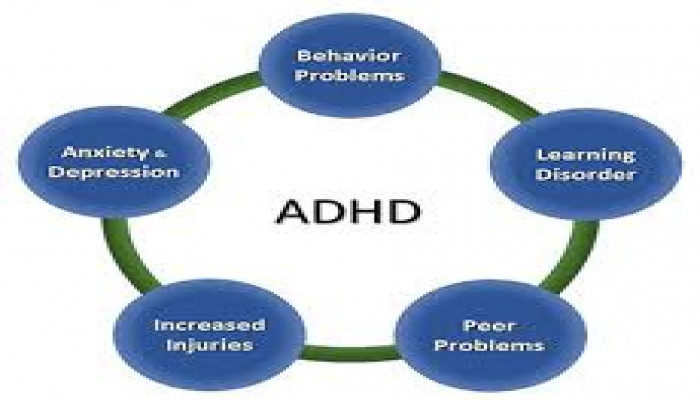 Launch apps instantly. Claim $200 credits on DigitalOcean
Launch apps instantly. Claim $200 credits on DigitalOcean
Empowerment through Understanding ADHD
Written by john123 » Updated on: March 23rd, 2024

Introduction:
Attention Deficit Hyperactivity Disorder (ADHD) is a neurodevelopmental disorder that affects millions of people worldwide. Even with its widespread occurrence, there are still many myths and a serious lack of knowledge about ADHD. However, we can enable people with ADHD to flourish and realize their full potential by promoting a broader knowledge of the illness. This essay will examine the complex nature of ADHD, how it affects people on an individual and societal level, and how raising awareness and educating others can result in empowerment and constructive change.
Understanding ADHD:
The disorder is distinguished by enduring tendencies of hyperactivity, impulsivity, and inattention that obstruct normal functioning and growth. ADHD can continue into adulthood, despite being diagnosed more frequently in children. This can cause difficulties in a number of areas of life, such as relationships, work, and education. ADHD is a difference in brain structure and function rather than a reflection of intelligence or character, even though it is classified as a condition.
The variety of ways that ADHD presents itself is one of the main obstacles to understanding it. Some people may show hyperactive-impulsive symptoms like restlessness and impulsivity, while others may show mostly inattentive symptoms such trouble focusing and organizing work. Furthermore, a lot of people with ADHD have a combination of both kinds of symptoms, which makes diagnosis and treatment more challenging.
Effects on People:
Having ADHD can have a significant negative influence on a person's relationships, general well-being, and success in school and the workplace. It can be challenging for people with ADHD to excel in conventional learning and work situations since many of them struggle with executive function abilities including organization, impulse control, and time management.
Furthermore, people's mental health and sense of self-worth might suffer as a result of the stigma and misunderstandings surrounding ADHD. Many persons with ADHD internalize unfavorable perceptions of their skills and may experience feelings of guilt or misunderstanding. They could therefore be reluctant to ask for assistance or tell people about their illness, which would only serve to reinforce their feelings of alienation and loneliness.
Empowerment via Education:
Raising awareness and educating people with ADHD is the first step in giving them more power. Through factual knowledge on the characteristics of ADHD and how it affects people's lives, we may debunk myths and misconceptions and promote a culture of greater acceptance.
The main symptoms of ADHD should be covered in education, but so should any potential advantages or disadvantages of the disorder. While ADHD can pose substantial hurdles, it also carries with it unique skills, such as creativity, intuition, and resilience. By recognizing these abilities, we can assist individuals with ADHD see their intrinsic worth and potential for success.
Furthermore, information regarding ADHD should extend beyond the individual to involve their family, classmates, educators, and employers. By enhancing understanding of the different needs and experiences of individuals with ADHD, we may promote more empathy, support, and accommodation in many areas of life.
Building Supportive surroundings:
In addition to education, providing supportive surroundings is vital for empowering those with ADHD. This may require adopting accommodations and changes in educational and workplace contexts to accommodate the special needs of individuals with ADHD.
For example, in schools, educators can provide preferential seating, additional time on assignments and tests, and access to organizing tools and resources. In the workplace, companies can give flexible work schedules, clear instructions and expectations, and opportunity for professional development and promotion.
Moreover, building a culture of tolerance and acceptance is vital for encouraging those with ADHD to succeed. By providing settings where individuals feel valued, respected, and understood, we can tear down barriers and offer more opportunity for success and fulfillment.
Embracing Neurodiversity:
At its foundation, empowerment through understanding ADHD is about embracing neurodiversity - the knowledge that each individual's brain is wired differently and that these differences should be welcomed rather than vilified. By embracing neurodiversity, we can promote a more inclusive and fair society where everyone has the opportunity to fulfill their full potential.
This begins with overcoming preconceptions and biases around ADHD and advocating acceptance and accommodation for those with the illness. By acknowledging the qualities and abilities that persons with ADHD bring to the table, we can harness their unique talents and perspectives to generate innovation, creativity, and good change.
Conclusion:
Empowerment through understanding ADHD is a journey that requires commitment, compassion, and collaboration. By educating ourselves and others about the nature of ADHD and its impact on individuals' lives, we can break down barriers and promote greater understanding and acceptance.
Moreover, by creating supportive environments and embracing neurodiversity, we can empower individuals with ADHD to thrive and succeed on their own terms. Through collective action and advocacy, we can build a more inclusive and equitable society where everyone has the opportunity to reach their full potential, regardless of their neurodiversity.
Copyright © 2024 IndiBlogHub.com Hosted on Digital Ocean









Post a Comment
To leave a comment, please Login or Register